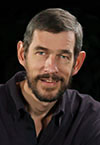Eyes of a Child-Part 1
This is the opening of the first chapter of this book I’m working on.
I’m undecided about whether the opening paragraphs in blue work as a good contrast, or whether they focus on “Nancy” then jump disconcertingly to the parents.
__________
My mother named me after a song, “Nancy with the Laughing Face.” When I was two, I wandered from my mother in a department store and stumbled into a kind elderly man. He led me back to her and bought me a fluffy stuffed kitten that I treasured for years. I started out so innocent, so friendly.
Not so my parents.
After the deaths of her own parents, my mother, Dolores, and six siblings landed in an orphanage. She detested being an orphan. Mom had written her feelings in a tattered notebook I acquired after she died: “I felt abandoned. I spent most of my time reading. I guess you could say I formed a shell so nobody could hurt me. . . . How did I spend my years in the orphanage? I would pray to the God I believed in at the time, begging him to find somebody to love me. Crying many a tear and nobody even hearing me.”
Mom grew into a statuesque raven-haired beauty who dreamed of a singing career. I sometimes wondered why my thirty-one-year-old father handpicked this vulnerable eighteen-year-old-orphan to marry. Perhaps it was easy to control the pretty teenager nobody wanted. He pursued her relentlessly, setting her up with auditions and showering her with gifts and adulation. But she never made it in show business. Daddy’s financial stability provided Mom the sense of security she craved. Their age difference seemed to quench her desire for a father figure as well. But my disapproving grandmother never mothered her, had little use for an orphan, and rejected her from the start.
Mom settled into the role of the dutiful wife. Less than eight months later, I was born. My brother, Bobby, followed thirteen months later. Mom played games with us, like house, Candy Land, and catch. We felt happy and secure.
My father possessed an IQ of 150 but suffered from severe depression, which eventually conquered him. Perhaps that’s why Daddy got drunk a lot. Although a brilliant engineer, he lost several jobs, most likely because of his drinking.
Six feet tall and somewhat stocky, he always hid his bald head under a fedora and wore a hound’s-tooth suit to work. At home he lazed in old undershirts and his tired gray slacks. His breath reeked of cigarette smoke, Listerine, and brandy. The Old Spice scent of his shirts came to define every memory of the rare occasions he let me near him.
My father apparently learned lack of affection from his father, who had abandoned the family, and his stern, unloving mother who didn’t. I rarely saw him hug or kiss my mother. He avoided us kids except to punish us. He never smiled. His face seemed frozen in a perpetual grimace, his gray eyes clinical and aloof.
Dinner had to be prompt with children seated at the dining room table. Daddy didn’t like to wait. Each night, he laid his pack of Camels next to his plate. He lifted his brandy snifter and in one swig guzzled every drop. My mother played bartender to keep up with his insatiable thirst for liquor. No one dared speak or disturb his meal. He ate his food quickly, following it with a cigarette and more brandy. He puffed away, drowning us in a fog of smoke, which seeped into my food, making it taste awful. But I either ate it or went hungry.
Daddy played his prized piano on weekends, which resounded throughout our house. It irritated my mother. She’d shout, “Bob, stop that incessant noise! I can’t hear myself think!” It riled him when she derided his beloved music. He swore at her, and she swore right back. I fled to my bedroom, closed my door, and blasted my record player to drown the shouting.
__________
When I was five, I saw my first Shirley Temple movie. It left me spellbound. “Mommy, can you teach me to dance like that? Please? Please?” I looked into her eyes and fluttered my eyelashes. That always seemed to work. Her own singing aspirations crushed, Mom had vicarious dreams for me.
The following Monday she drove me to the Leah Mauer School of Dance, not far from our New Jersey home. I fell in love with Mrs. Mauer the moment I saw her graceful dance. Bobby had dance aspirations too, so Mom enrolled him in classes with me. I studied ballet and tap in a breathtaking studio of floor-to-ceiling mirrors, dazzling lighting, and ballet barres lining one of the walls. Shiny wooden floors, tall leafy plants, and a row of coppery chairs completed this little place of heaven on earth.
I dreamed I’d be a famous dancer one day and perform in movies. I’d also become a happy wife and mother. Mrs. Mauer would say, “Never quit, Nancy. Never give up on your dreams.” She was a strong influence on me and always encouraged me to push harder. I’ll never forget her fun-loving teaching and patient mentoring.
Whenever I wore my ruffled tutu, I twirled round and round in front of those mirrors. I felt like a princess and adored being a ballerina. But when Mrs. Mauer positioned me as the lead dancer in a tap recital, my ballet interests faded. I rehearsed every free moment, determined to perfect the routine. The constant tapping vibrated my bedroom floor and frayed my father’s nerves. He was not a happy man. But that didn’t matter to me because he wouldn’t attend my recital anyway.
The day finally arrived two weeks after my ninth birthday. Mom set my hair in banana curls, like Shirley Temple’s hairdo. Adorned in a Lamé costume, glittery gloves, and golden tap shoes, I sparkled from head to toe. Striking a pose in front of a full-length mirror, I tipped my hip to the side and did a heel-tap. Just like Shirley.
No stage fright for me. I beamed throughout the entire recital. Five girls danced by my side, but all eyes were on me. The audience rose to its feet as I bowed. I shut my eyes and soaked up the applause.
After that, I transformed my bedroom into a sanctuary. An RCA record player became my unfailing friend. I locked my door and danced to my favorite 45 records. When I danced, I sailed into paradise where my everyday world no longer existed. If only dancing could have done that for me in following years.
__________
What do you think?







